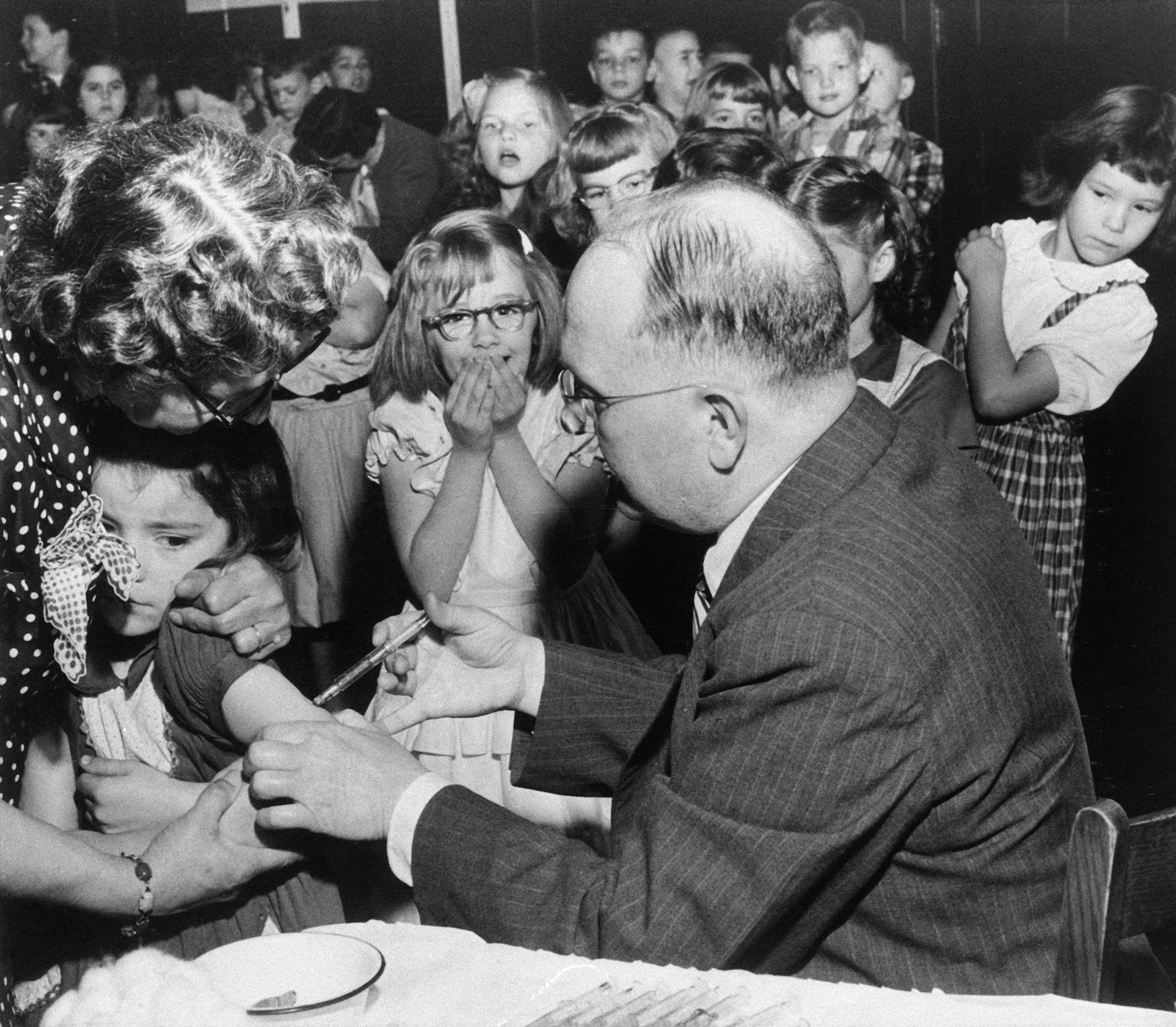
Patsy Murr, first grader at Fulton School in Lancaster, Pa., gets her Salk shot from Dr. Norman E. Snyder as she is held by Mrs. Walter Sourweine, April 25, 1955. Others view the proceedings with mixed emotions
Date Created:
Year Created: 2011
Historical Theme:
Collection this Document is Affiliated with:
Description: In this article, author Meredith Melnick discusses the discourse surrounding vaccines and the anti-vaccine movement spreading in the United States. She talks about the fear that people have about vaccinating their children and how skepticism of vaccines can add to the conversation surrounding regulating their safety.
Categories of Documents:
Childhood inoculations protect us against deadly infectious diseases like measles, whooping cough and polio. But they are also the source of near constant conflict — most recently in the Feb. 22 Supreme Court decision that ruled in favor of a vaccine manufacturer over the family of a disabled girl. In recent years, some parents, influenced by fringe activists who believe vaccinations cause autism, brain damage and other ailments, have begun to refuse them for their children. Dr. Paul Offit, chief of the Division of Infectious Diseases and the director of the Vaccine Education Center at the Children's Hospital of Philadelphia, has seen the consequences: preventable childhood deaths, community outbreaks of outdated diseases and misinformed, angry parents. In a conversation with TIME and in his recent book, Deadly Choices: How the Anti-Vaccine Movement Threatens Us All, Offit describes the origins of our squeamishness with inoculation and why we should fight against it.
Vaccine refusal also spans non-Western cultures. In Nigeria, some people believe the polio vaccine causes AIDS. Why are vaccines so universally scary?
At the heart of it, vaccination is an aggressive act. You pin the child down, you inject them with a biological agent. And for many, its unclear how the biological agent works. So I think it appeals to people's fears. Also, vaccines are given to most children but are designed to prevent only specific infections. They aren't designed to prevent everything that happens in the first few years of life, so there are definitely going to be temporal associations that aren't necessarily causal associations. But we do ask a lot of our citizens. We ask them to get 14 vaccinations in the first few years of life and two more in adolescence. That's a lot of immunizations. If you look at immunization rates in the United States, they are pretty good: in the high 80% or low 90% range. What's changed is that now some communities are making the choice not to vaccinate—in Southern California, Ashland, Ore., or on Vashon Island, off the coast of Washington State. You have a lot of people in daycare centers or schools who are making the same choice, so there are communities where [infectious disease] outbreaks are starting to occur. We saw that with the whooping-cough epidemic in California this past year. It was the largest in more than 40 years.
Do you think skepticism about vaccines adds anything valuable to the conversation?
John Salamone, who had a child who suffered polio through a rare consequence of the oral polio vaccine, is a perfect example of a safety activist. He lobbied the American Academy of Pediatrics and the CDC to move from the live oral polio vaccine to the inactivated polio vaccine. He put a face to the children who suffered vaccineassociated paralytic polio every year, and that made a difference. But Salamone's contentions were science-based. The new antivaccine arguments aren't. Vaccines don't cause autism or brain damage, so when Barbara Loe Fisher or J.B. Handley or Jenny McCarthy or Jim Carrey or Bill Maher argue for safer vaccines, you can't make those vaccines any safer using their definition because vaccines aren't unsafe using their definition. Vaccines don't cause autism, so you can't make them safer by making them not cause autism.
Citation: Melnick, Meredith. “The Dangers of the Antivaccine Movement.” Time, Time, 24 Feb. 2011, time.com/archive/6934802/the-dangers-of-the-antivaccine-movement/.

